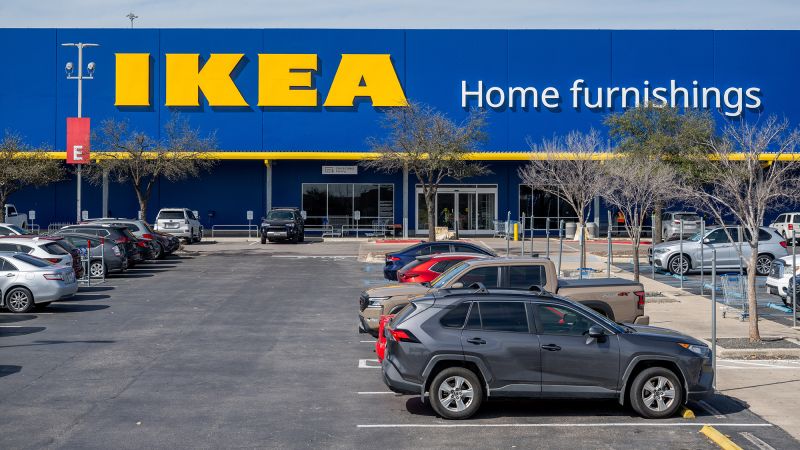Ikea experienced a decrease in revenue for the first time in four years, despite an increase in orders, after slashing prices on roughly 2,000 products last year to ease the burden of inflation on customers. Sales fell by 4% to €45.1 billion ($49.3 billion) for Ikea’s 2024 financial year, which ran from September 1, 2023, to August 31, 2024. The company announced that it has no regrets about its decision to prioritize lowering prices as part of a $2 billion discount initiative at all of its stores worldwide.
Jesper Brodin, the CEO of Ingka Group, Ikea’s largest franchisee, stated that factors such as inflation and interest rates have had an impact on people’s finances, and in challenging times, they want to support customers in the best way possible. He emphasized that lowering prices is a long-term commitment for the company and praised the strength of the Ikea vision, teamwork, and entrepreneurial spirit that were tested during the past year. The impact of the pandemic led to cost increases in materials and transport, leading Ikea and its competitors to gradually raise prices since 2020.
Despite the revenue decline, Ikea’s decision to lower prices resulted in a higher number of visits to its stores and website, with a 21% increase in traffic. The company also reported selling 1.2 billion meatballs and an increase in meal sales at its cafés. The success of the discount program in attracting customers reflected positively on Ikea’s strategy, even though it affected its bottom line. While the company plans to introduce a new round of discounts this year, they will not be as significant as the previous year.
Ikea’s approach to lowering prices and offering discounts was a response to the challenges faced by customers due to inflation and rising interest rates. The company’s commitment to supporting customers during difficult times by providing affordable products resonated with consumers, leading to an increase in orders and visits. Despite the decline in revenue, Ikea remains committed to its long-term promise to maintain affordable prices and continue its discount initiatives. The success of the discount program showcased the strength of Ikea’s vision, teamwork, and adaptability in navigating through challenging economic conditions.
The impact of the pandemic on the global economy, including cost increases in materials and transportation, had a significant influence on Ikea’s pricing strategy. Like its competitors, Ikea faced the challenge of balancing price increases with maintaining affordability for customers. The decision to reduce prices on popular items, such as the Billy bookcase, was aimed at attracting more customers and driving sales. While the company experienced a decline in revenue, the increase in customer visits and orders demonstrated the effectiveness of its pricing strategy in engaging customers and fostering loyalty.
Looking ahead, Ikea plans to continue offering discounts, although they may not be as substantial as in the previous year. The company’s focus on maintaining affordable prices and supporting customers during challenging times reflects its commitment to its long-term vision and values. By adapting its pricing strategy in response to changing economic conditions and consumer needs, Ikea remains a leading player in the furniture retail industry. The success of its discount initiatives and the positive impact on customer engagement underscore the strength of Ikea’s brand and its ability to navigate through challenging market environments.













